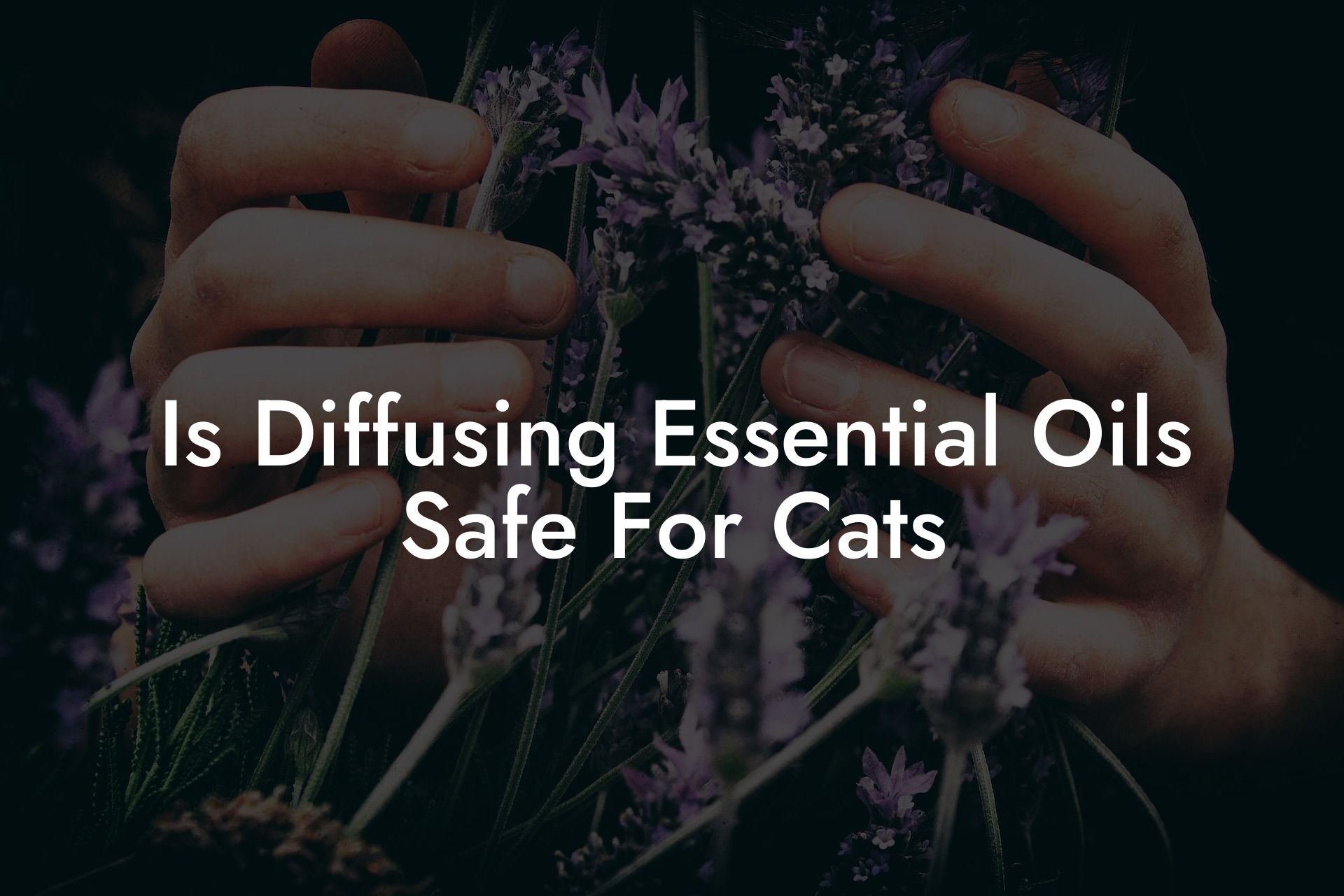As a loving cat owner, you want to ensure your feline friend’s safety and well-being in every aspect of life – including the use of essential oils. With the increasing popularity of essential oils and diffusers, it’s important to know if these natural aromatic compounds are indeed safe for your cat’s delicate system. In this article, we will delve into the world of essential oils, discuss their effects on cats, and provide guidance to keep your furry friend safe and healthy.
Table of Contents
Are Essential Oils Safe for Cats?
Cats have a unique physiology that makes them more sensitive to essential oils than humans or even dogs. Their liver has a limited ability to break down the chemical compounds in essential oils, which means these substances can accumulate in their system and potentially cause harm.
Some essential oils are known to be toxic to cats, while others can be used safely in low concentrations or under the guidance of a qualified veterinarian. Here’s a brief rundown of the various categories of oils and their safety for cats:
Safe Essential Oils for Cats
- Lavender
- Roman Chamomile
- Cedarwood
- Frankincense
Potentially Harmful Essential Oils for Cats
- Tea Tree
- Peppermint
- Eucalyptus
- Citrus Oils (Lemon, Orange, Grapefruit, etc.)
- Ylang-Ylang
- Basil
- Rosemary
Keep in mind that even safe essential oils should be used with caution and in appropriate dilutions around your feline friends to prevent any harm.
Using Essential Oils Safely Around Cats
If you want to enjoy the benefits of essential oils in your home while keeping your cat safe, follow these important guidelines:
Consult with a Veterinarian
Before implementing essential oils in your cat’s care routine, consult with a veterinarian who is knowledgeable about essential oils and their effects on animals. They can provide recommendations on the appropriate oil, dilution, and application method for your specific situation.
Ensure Quality of the Essential Oils
Always choose high-quality, pure essential oils from reputable suppliers, like Oshu Oils. Low-quality oils may contain impurities that can be more harmful to your cat.
Proper Dilution and Application
For diffusing, always dilute essential oils appropriately – generally, no more than 1-2 drops of oil per 100 ml of water in the diffuser is recommended. Ensure that your cat can leave the room if they are uncomfortable with the aroma. Avoid direct application of essential oils on your cat’s skin without consulting a veterinarian.
Observe Your Cat for Any Adverse Reactions
Monitor your cat closely for any signs of distress, such as excessive grooming, drooling, difficulty breathing, or lethargy. If you notice any of these symptoms, discontinue the use of essential oils and consult your veterinarian immediately.
Is Diffusing Essential Oils Safe For Cats Example:
Imagine this scenario: You’ve had a long day at work, and you want to unwind with a soothing lavender essential oil in your diffuser. Before you start, consider the following steps to ensure your cat’s safety:
1. Consult with your veterinarian about the safety of lavender oil for your cat.
2. Choose a high-quality lavender essential oil from a reputable brand like Oshu Oils.
3. Place 1-2 drops of the lavender oil in a 100 ml water-filled diffuser.
4. Set up the diffuser in a well-ventilated room and make sure your cat can easily leave the area if they’re uncomfortable.
5. Observe your cat’s behavior for any signs of discomfort or irritation. If any issues arise, discontinue use and consult a veterinarian.
The safety of your feline friend is paramount when introducing essential oils into your home. By following the guidelines shared in this article, you can experience the benefits of essential oils while keeping your cat safe and healthy. If you found this information helpful, please share it with other cat owners who may benefit from these useful insights. Be sure to explore other guides related to essential oils and aromacology from Oshu Oils, and discover our carefully crafted range of essential oils to enhance your wellbeing.





















